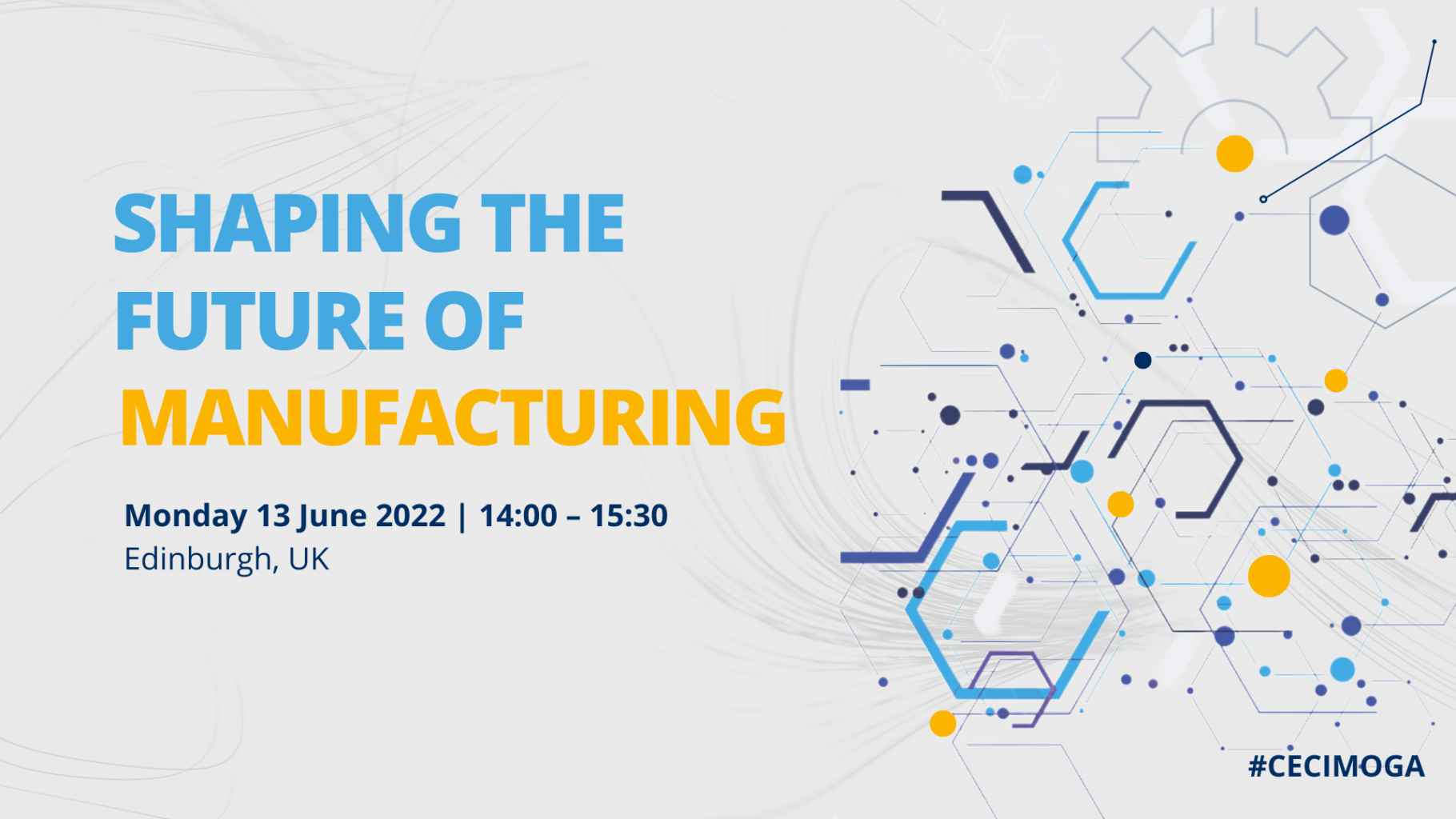Key Takeaways – Conference on Shaping the Future of Manufacturing

Digital Transformation is changing the economy, remodeling business activities, transforming the world of work, and generally speaking affecting common daily activities.
With this in mind, CECIMO organised a panel discussion on ‘Shaping the Future of Manufacturing’ as part of the General Assembly that was held in Edinburgh. The purpose of the event was to discuss the impact of digital transformation on industry, highlighting the challenges and opportunities that this transition brings to the manufacturing sector.
Chairman of CECIMO Communication and Advocacy Committee Michael Merkle, moderating the discussion, highlighted that industry must take advantage of the valuable opportunities that digital transformation brings along and ensure the right framework is in place for businesses to successfully operate in the next years.
Technology is changing at an increasingly fast pace and digital manufacturing is gradually replacing traditional production methods. The whole manufacturing mindset will need to shift and view threats as growth opportunities. The new era of industry 5.0 is going to focus on a human-centric, resilient, and sustainable future, emphasised Rab Scott, Chief Engineer for Digital, High Value Manufacturing at Catapult in his introductory speech.
Observing the challenges that digital transformation brings, Anna Hultin Stigenberg, CLC North, EIT Manufacturing underlined workforce issues and the implementation of new technologies as two of the biggest obstacles. However, she stressed that a collaborative approach and partnerships are key in providing support to industry in order to tackle the ongoing challenges. In that respect, she highlighted some of the main programmes that EIT Manufacturing offers, such as access to market, access to finance, mentoring and training programmes.
Bringing the perspective of SMEs, Alessandro Liani, CEO, Video Systems Srl pointed out that in order to overcome the challenges that small businesses are facing, policymakers should focus their activities on investments in digital infrastructure and Digital Innovation Hubs.
Offering insights from the Commission's side, Sean O’Regain Deputy Head of Industry 5.0 at DG RTD, European Commission, said that the field of Advanced Manufacturing in the EU can be considered a knowledge hub with a strong research skills base that supports advances in several areas of the sector. To bridge the gap between R&D and market uptake, the EU created different partnership programmes and established relations between universities and industry players. On the other side, David Blanchard, Deputy Head of Digital Transformation of Industry at DG GROW, European Commission pointed out that the European Commission must interact directly with various stakeholders in order to ensure the adoption of well-coordinated regulations that will not hamper market growth or the innovation potential of the manufacturing industries.
Offering a corporate perspective, Andrew Hodgson, Strategic Lead for Digitalisation at Siemens stressed that confidence, accessibility, and where to start are the main barriers when it comes to adopting digital solutions. Moreover, he added that a transferable skill set will be required to adapt the workforce to the industrial transformation. Focusing on a human-centric approach, Julian Ware, UK & Ireland Sales Manager at ABB Robotics said that that robots will not replace people, but they should be viewed as an enhancement to humans to improve business competitiveness.
++WATCH THE RECORDING++








